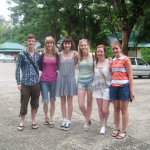(Part One) Cedric Chua Chong Jie’s decision to study pharmacy was sparked by the availability of opportunities in this profession. Not only does pharmacy entail the rewarding opportunity to work in a myriad of professional settings such as hospitals, pharmacies and the pharmaceutical industry, it also represents a noble gateway to making real impact in patients’ lives. Cedric’s decision led him to start his studies in pharmacy at IMU in July 2011. He later transferred to University of Queensland for completion of his degree and graduated in December 2015. Currently, he is working as a marketing executive at a private pharmaceutical company. Cedric shares with us his experience studying at IMU and University of Queensland in this interview. 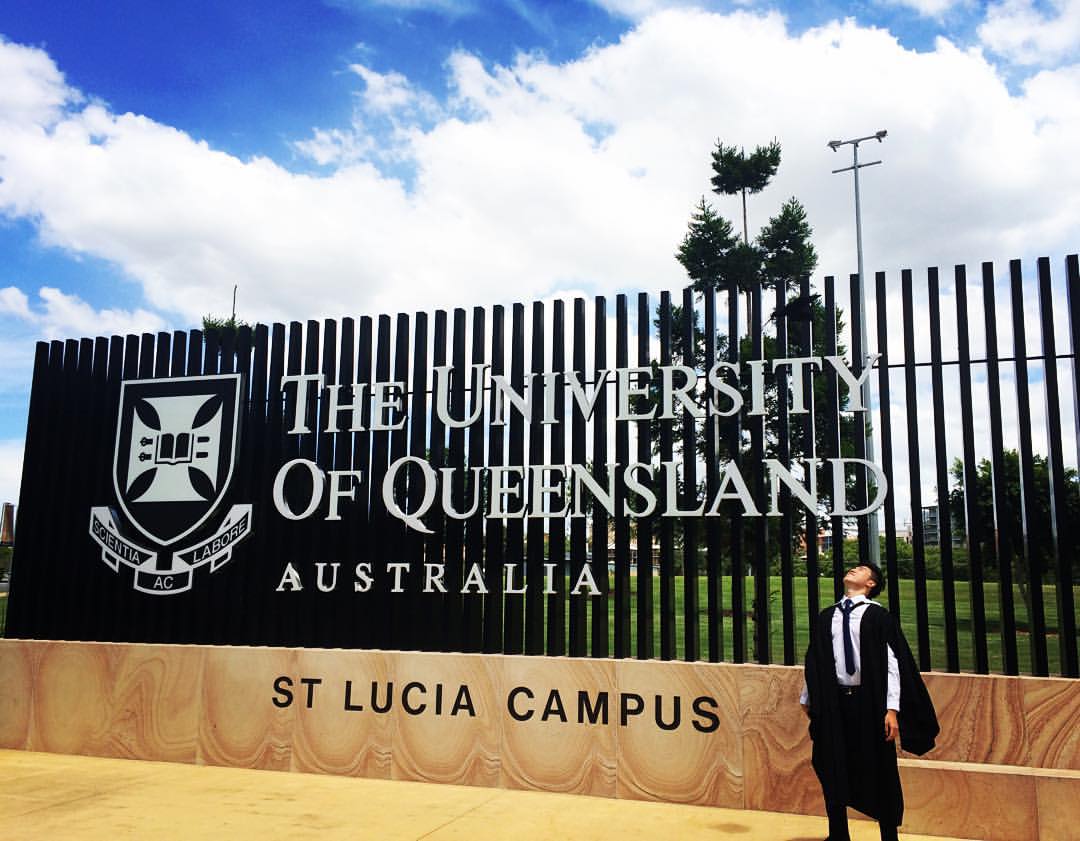 Most memorable time at:
Most memorable time at:
| International Medical University |
| It has to be the victory of my cheerleading team in the 2013 IMU Cup Cheerleading Competition. It was a sport that I took up during my first year and one that, given the team building nature of it, cultivates a fantastic family-like environment on which all of us thrived under. The triumph was a culmination of three months of hard work and a lot of pain, blood, sweat and tears, and this extraordinary experience will be forever etched in our memories. |
| University of Queensland |
| The launching of the 1st Malaysia-Australia Virtual Career Engagement Session marked a significant milestone in my time in Australia. Mandated to spearhead this project by the Malaysian Student Council of Australia, I successfully pulled off a cross-border engagement between various established Malaysian businesses and Australian-based Malaysian students from 6 different states aimed at providing industry-specific insights. It was made possible by mobilising several work groups in these states but what made this experience particularly memorable was the paradigm shift from a physical approach to a virtual one, from planning stage right till execution. The fact that my graduation exam was 2 weeks away ensued a thrilling finale to my student life. |
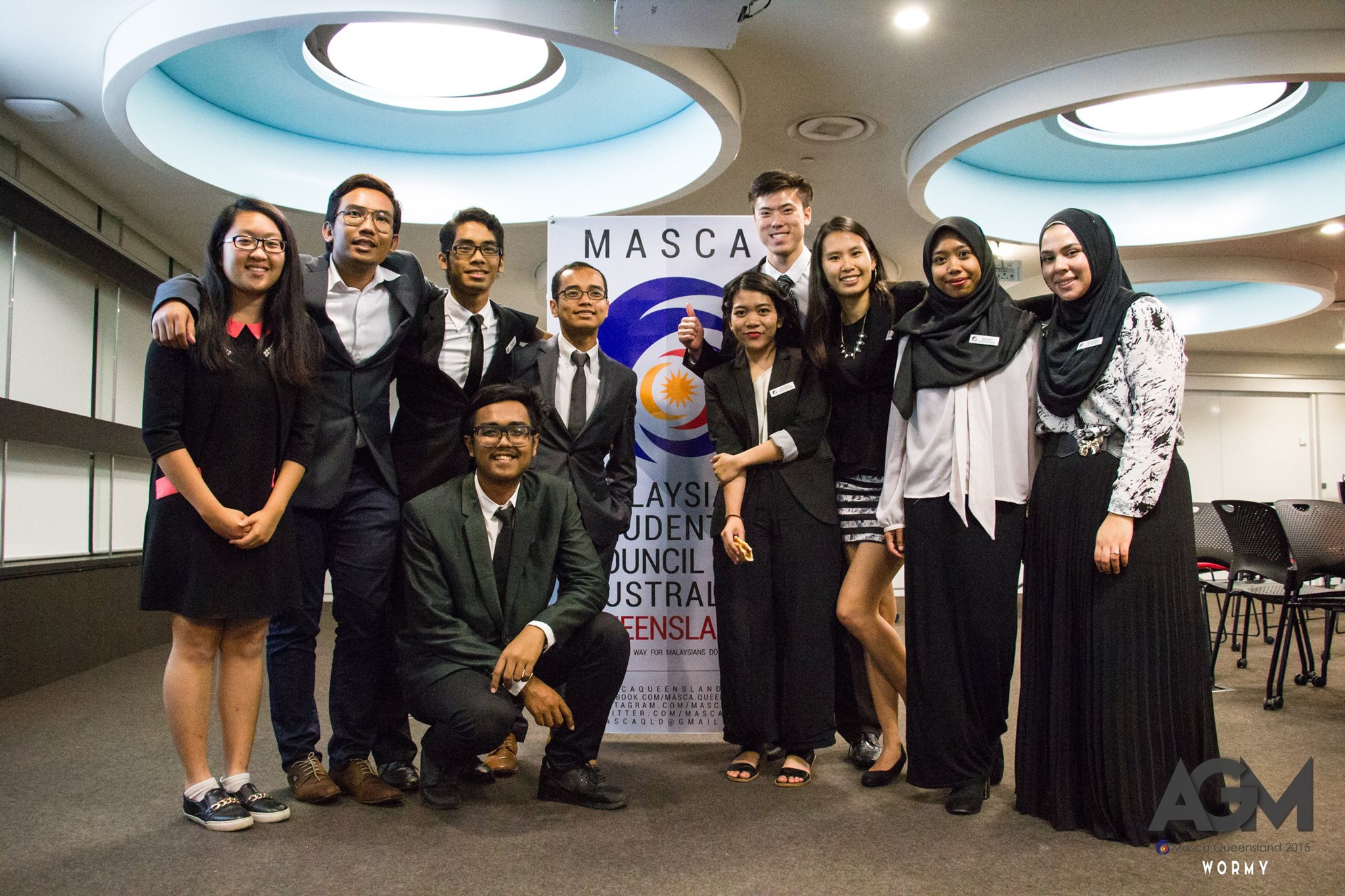 What are the differences studying in the two universities? The two universities share similarity in the aspect that both focus on health sciences courses and offer a vibrant campus environment for a holistic education experience. However, the notable difference between both universities lies with their syllabus and method of teaching. While IMU emphasises on self-studying and an open-ended learning that requires independence from students, UQ takes a different approach through a tailored content that is well-rounded and comprehensive, supplemented by ample of practice and contact sessions with lecturers. For me, to have gone through both systems is really a case of embracing the best of both world —–a privilege that I am truly thankful of.
What are the differences studying in the two universities? The two universities share similarity in the aspect that both focus on health sciences courses and offer a vibrant campus environment for a holistic education experience. However, the notable difference between both universities lies with their syllabus and method of teaching. While IMU emphasises on self-studying and an open-ended learning that requires independence from students, UQ takes a different approach through a tailored content that is well-rounded and comprehensive, supplemented by ample of practice and contact sessions with lecturers. For me, to have gone through both systems is really a case of embracing the best of both world —–a privilege that I am truly thankful of. 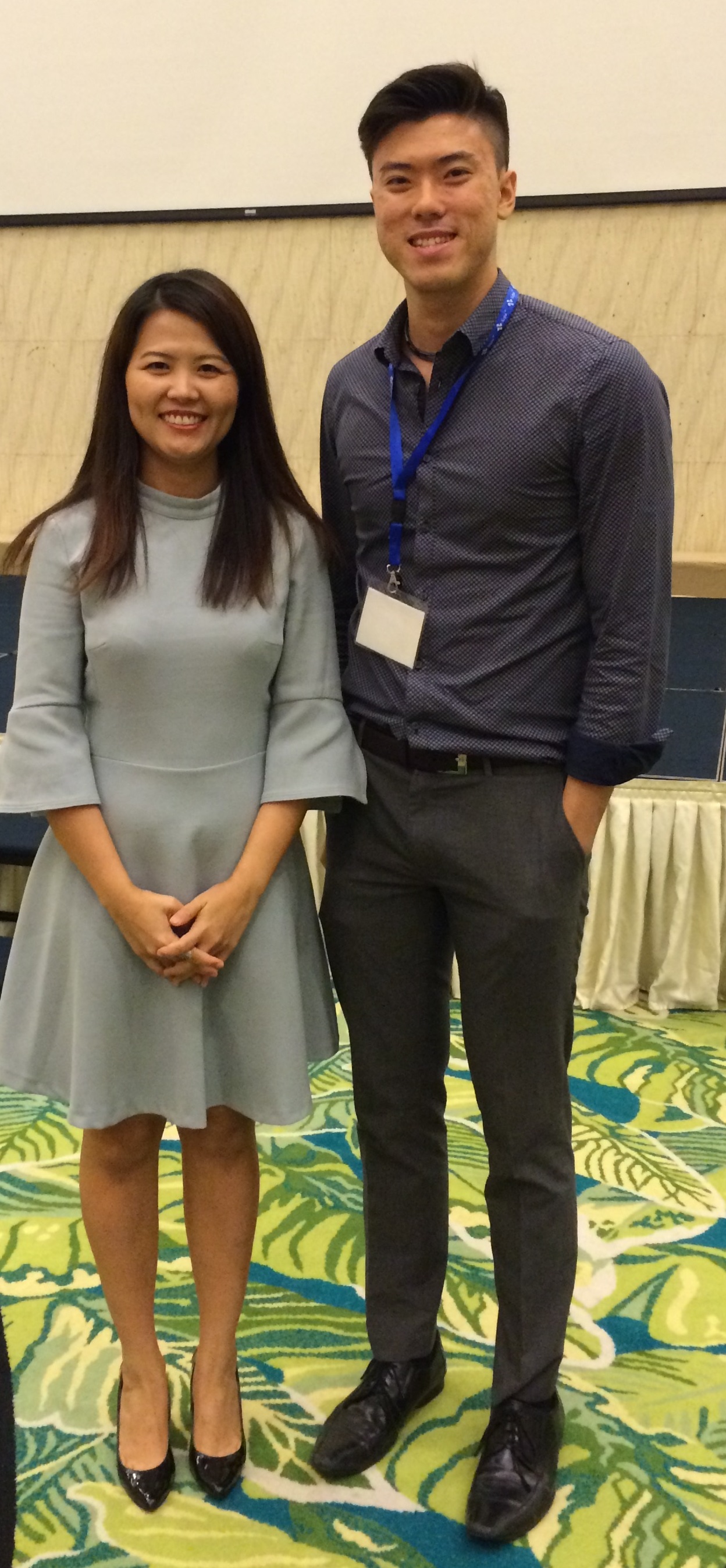 How well do you think IMU and University of Queensland have prepared you for your current employment? I attribute the significant development in my character and capabilities to the nurturing experience provided by both universities. Though I was rather shy and reserved in high school, I was coaxed out of my shell while pursuing my study at these universities. Throughout the four years, I was fortunate to be handed numerous opportunities to hone my leadership skills and took part in advocacy and project management. The experience has helped me to strengthen my self-confidence, particularly in forming, presenting as well as defending my views and ideas. What’s more, working and interacting with people from diverse background has caused me to mature beyond my age.
How well do you think IMU and University of Queensland have prepared you for your current employment? I attribute the significant development in my character and capabilities to the nurturing experience provided by both universities. Though I was rather shy and reserved in high school, I was coaxed out of my shell while pursuing my study at these universities. Throughout the four years, I was fortunate to be handed numerous opportunities to hone my leadership skills and took part in advocacy and project management. The experience has helped me to strengthen my self-confidence, particularly in forming, presenting as well as defending my views and ideas. What’s more, working and interacting with people from diverse background has caused me to mature beyond my age.
Notably, the academic training at these universities have equipped me with analytical, problem solving and collaborative skills that I now apply in my job and daily life. Overall I think perhaps the emphasis on research skills and lifelong learning has the greatest impact on what I am today.Cedric also shares with us his working experience as a pharmacist.
Why did you choose to work in the industry? Prior to graduation, I have had stints at Pfizer Malaysia and Astra Zeneca Australia which were instrumental in cementing my interest in the pharmaceutical supply chain. While loving the collaborative and participative nature of work, my real motivation stems from the opportunity to work on production of medicines that could benefit the general population, which I believe is what pharmacy is fundamentally about – optimizing patients’ health through medicine. Where did you do your PRP? At a private pharmaceutical company 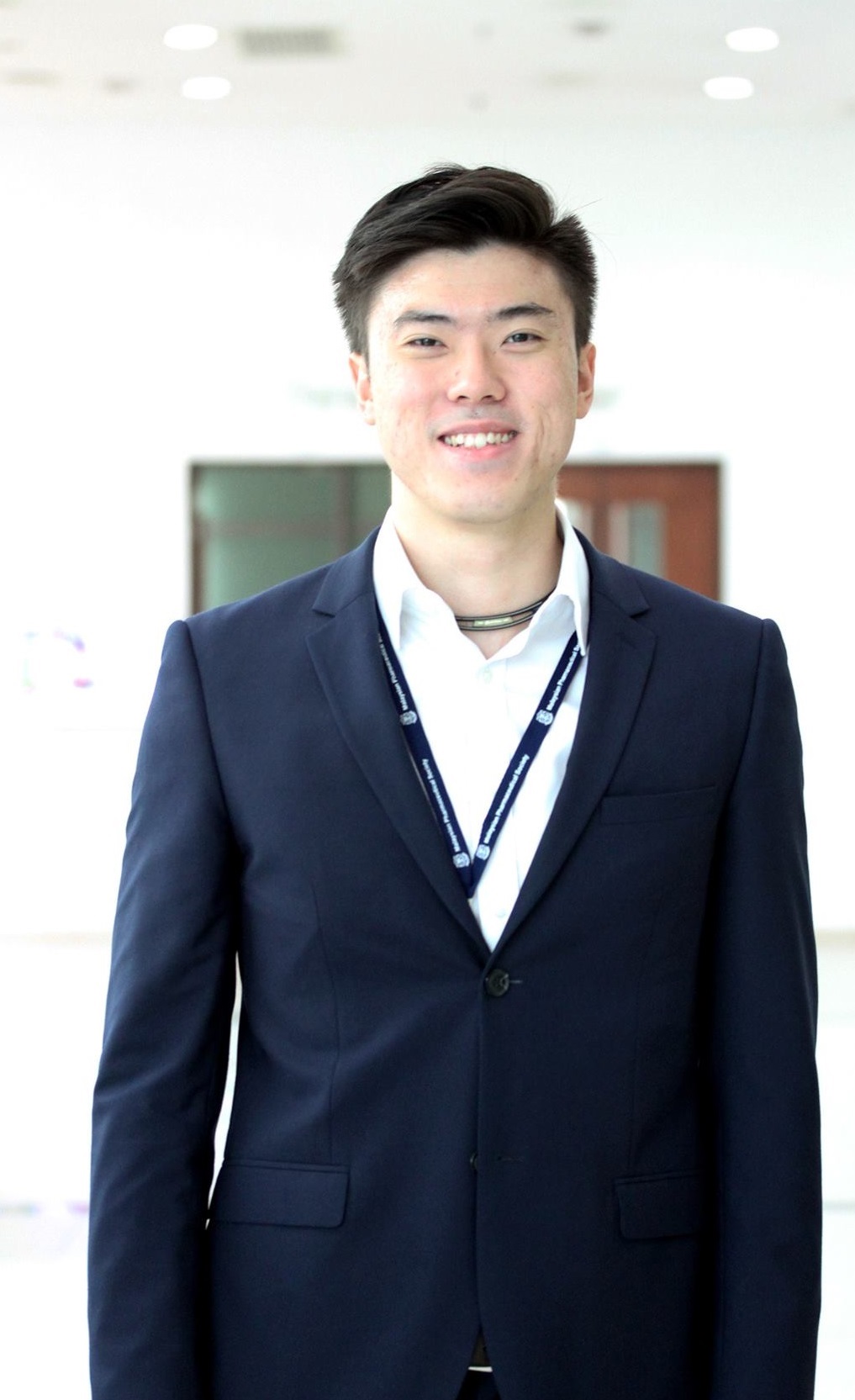 Describe a “typical” work day for you On a typical work day, I usually begin by checking the calendar to keep myself abreast of important agendas for the week, and to refresh my memory of things to be done for the upcoming week. This helps me to prioritise work. I would then make vital phone calls, respond to messages pertaining to projects and to send out important emails first thing in the morning, in hope of getting a prompt response by the end of the day. I would review the status of projects and plan a to-do list around other things like meetings, and tackle items on it systematically. Personally, I accept nothing less than efficiency from myself and always strive to keep assignments on schedule. What does your job entail? As a marketing executive, I provide support to the business in two aspects: marketing operation and projects. With the former, I facilitate front-end endeavors of a team comprising of commercial representatives, resolving matters relating to orders, contracts, trade plans and customer queries. As for the latter, I provide support for new business ventures and market optimisation efforts for domestic and international markets through market analysis and content generation. What keeps you motivated to continue doing your job? I perceive a fulfilling job as one in which I trust the people I work for, have pride in what I do and enjoy the company of the people I work with. I am happy to say my current employment satisfies me in these aspects and job satisfaction happens to be my chief source of motivation. Meanwhile, the opportunity to acquire new skills and potential for career development and advancement are also factors that keep me going. How do you deal with the different types of people that you encounter at work? Dealing with people is an art, which can turn out to be rather challenging. More often than not, a tailored approach is required. Personally, I’d love to find out how other people prefer to work, and after taking note of that I will strive to adapt accordingly. I find this a great way to accommodate working with different personalities and styles and yet still be able to maintain a healthy team spirit. However, I always uphold the principles of being frank, forthright and respectful regardless.
Describe a “typical” work day for you On a typical work day, I usually begin by checking the calendar to keep myself abreast of important agendas for the week, and to refresh my memory of things to be done for the upcoming week. This helps me to prioritise work. I would then make vital phone calls, respond to messages pertaining to projects and to send out important emails first thing in the morning, in hope of getting a prompt response by the end of the day. I would review the status of projects and plan a to-do list around other things like meetings, and tackle items on it systematically. Personally, I accept nothing less than efficiency from myself and always strive to keep assignments on schedule. What does your job entail? As a marketing executive, I provide support to the business in two aspects: marketing operation and projects. With the former, I facilitate front-end endeavors of a team comprising of commercial representatives, resolving matters relating to orders, contracts, trade plans and customer queries. As for the latter, I provide support for new business ventures and market optimisation efforts for domestic and international markets through market analysis and content generation. What keeps you motivated to continue doing your job? I perceive a fulfilling job as one in which I trust the people I work for, have pride in what I do and enjoy the company of the people I work with. I am happy to say my current employment satisfies me in these aspects and job satisfaction happens to be my chief source of motivation. Meanwhile, the opportunity to acquire new skills and potential for career development and advancement are also factors that keep me going. How do you deal with the different types of people that you encounter at work? Dealing with people is an art, which can turn out to be rather challenging. More often than not, a tailored approach is required. Personally, I’d love to find out how other people prefer to work, and after taking note of that I will strive to adapt accordingly. I find this a great way to accommodate working with different personalities and styles and yet still be able to maintain a healthy team spirit. However, I always uphold the principles of being frank, forthright and respectful regardless.








